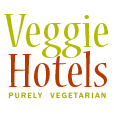The Planetary Health Diet – What Can We Do?
How surprised was I this morning to switch on BBC news to find out the latest on Brexit only to find they were discussing veganism. What’s more there was no frothing-at-the-mouth vegan hating, just a scientist talking about a major new study published in The Lancet about what they’re calling the Planetary Health Diet.

In a way there’s little that’s new in the Lancet paper. We’ve known for decades that our food consumption is unhealthy for us and unsustainable for the planet. We already know that the solution to both those problems lies in moving away from animal based agriculture and food and towards a plant based diet. What’s new is their attempt to translate both these factors into what we, as individuals should be eating in order to stay within environmental limits, improve our health and accommodate 10 billion people. Perhaps more significant is that it’s in the Lancet and is getting talked about in the mainstream media.
Because the study ignores animal welfare issues the Planetary Health Diet doesn’t advocate veganism. That makes sense, even if it makes uncomfortable reading for vegans because some consumption of animal products is possible without breaching environmental limits, and animal welfare isn’t what the paper is about. In practical terms it also makes what they say a little more palatable to the meat eaters whose diets are most in need of overhaul.
So what is the Planetary Health Diet? Well it advocates a drastic cut in meat consumption, especially red meat, eggs and what it calls “starchy veg” (potatoes mainly). Cuts for dairy are surprisingly modest and an unexpected increase in fish consumption is called for – surprising because of the current extent of over-fishing. Those things are compensated for by big increases in all the things we’ve know for a long time are good for us; fruit and veg, pulses, whole grains and nuts.

Put another way, they’re calling for a flexitarian diet, where animal products aren’t excluded but are reduced. That’s controversial among vegans but we think any reduction in the consumption of animal products is a good thing. More would be better of course but flexitarianism is better than nothing.
Governments around the world need to take action to make the Planetary Health Diet happen and the paper calls for that, but it seems unlikely to happen. That means it’s left to individuals to make the necessary changes. It’s not happening fast enough, but veganism is exploding in many of the places where meat consumption needs to start falling. In some places there’s a virtuous circle emerging. More vegans means there’s more vegan food available which makes it easier for everyone to cut down on animal products but still too few people know how to make delicious vegan food at home and that’s where we come in.
When we started Le Cheval Blanc we thought our customers would be all vegans and vegetarians. Many are but we’ve been surprised how many just want to try something new or to make their diets healthier. We like to be positive about what we do, showing people new ways to make wonderful, tasty and nutritious food. We’d love it if they all became vegan but it’s still fantastic if they cut down on animal products. This year we’ll be running a variety of residential workshops, holidays, and for those who live nearby, non-residential courses. If you’re inspired by the Planetary Health Diet or just want to try something new we’d love to hear from you.
The Lancet article is here. It’s free to read but you have to register on the site. It’s rather long, but the BBC have a pretty good summary here if you just want the main points.





